And what are we up to today?
Author Interview - Peadar Ó Guilín3/27/2018 Horror lovers: get ready for something completely different...
Could you survive the Call? This book was a breath of fresh air. Real fairies: the big, bad kind with no love for humans and a grudge the size of Ireland itself. And as if that isn't awesome enough, you're just in time for the release of the sequel... Grete: Your faeries are definitely not the sweet, sparkly sort that grace the Disney-fied fairytale landscape, but actually rather terrifying. Were there any specific stories or folktales that you drew upon for the creation of the inhabitants of the Grey Land? Peadar: Oh, yes, plenty! The favourite pastime of Irish fairies has always been kidnapping children. There are lots of traditional stories of awful things happening to anybody who crosses “the good people”, even accidentally. You won’t get three wishes here! G: How was your experience marketing a YA horror novel to publishers? P: I met my publisher at a conference and pitched him the idea. He claimed he loved it. So, a year later when it was complete, his company was the first I sent the manuscript to and they made an offer right away. G: During the course of writing the book, did any of the characters end up vastly different to how you first imagined them? P: Not really, because I made the characters up as I went along. I don’t plan things out. I start with an idea and see where it goes. The characters, therefore, tend to develop to fill the roles that need filling. Changing them afterwards would be very difficult, because at that point, it would mean changing the fundamentals of the entire story. G: Who surprised you the most? P: There’s a minor character in there called “Cahal”. His story surprised me, since I had no idea what was going to happen to him until it did. G: I very much enjoyed the presence of a heroine who is differently abled in this novel, especially as part of a plot not looking to "fix" her. What were your techniques for getting into Nessa's head? P: I interviewed a few friends. But I have always been interested in characters that other people want to put into a box. Usually, I just try to make them better versions of myself with bigger problems. This does not mean I don’t have a lot to learn, of course. G: Which of your characters is your personal favorite? Who would you happily banish to the Grey Land? P: Megan is my favourite, but I might not like her as much in real life. She doesn’t hold back and I’m pretty sure she’d find all the chinks in my armour. As for who to banish to the Grey Land, that has to be Conor. I grew up getting bullied and I have no patience for him and his ilk. G: The Fae realm of The Call is full of disturbing imagery, but also rich in color, smells, and textures. How did you come up with this landscape? Did it go through many permutations as you wrote? P: The Grey Land is something I created by accident for another story of mine that I wrote years ago — “Fairy Gold”. My anti-hero had just followed some fairies back to their world and I needed to populate it with animals. At that point, it just hit me that the animals should be made of people. This led me then to the power of the Sídhe to warp human flesh. I loved the concept. G: You have several book series in the works. How do you juggle the different projects as you work? What are your ultimate plans for the universe of The Call? P: With “The Invasion” to be published in March, this series is now complete. I don’t plan any other novels, although I might write a few individual “call” scenes. As for juggling all my other ideas, well, I’m not very good at that. I much prefer to work on one at a time. My poor little brain gets easily confused! G: What was the most interesting thing you researched for writing The Call and The Invasion? P: Irish mythology is endlessly fascinating to me. I got to read some wonderful books on the subject, including academic works such as the recently published “Ireland’s Immortals” by Mark Williams. G: What strategies would you most recommend to a new or up-and-coming author? P: Write lots. Join a critique group — even one that’s online. Accept that no matter how much you want your early work to be great, that it’s not as good as you think. BUT! I swear that if you keep working at it, over the years it will improve enormously. So, the biggest secret to success, is to keep working to improve no matter how disheartening it gets. G: Can you tell me about your favorite book? Why is it your favorite? 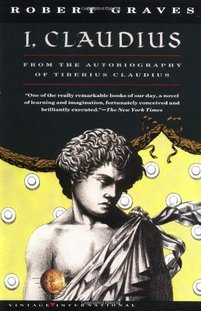 P: “I, Claudius” by Robert Graves is my favourite, although I reckon the style of it would put off most modern readers. It’s the story of a boy everybody thought was stupid, who rose to become Roman Emperor. The historical events described in it are more astonishing than anything fiction can produce. Peadar, I can't thank you enough for your delightful fairy deviltry, and for taking the time to answer my questions! Congratulations again on the sequel, and good luck on your next project. If you are interested in purchasing The Call and The Invasion, please visit Peadar's website Check out Peadar on social media: Facebook ~ Twitter ~ Goodreads Previous author interviews: Alexandra Oliva - The Last One Andrew Shaffer - Fifty Shames of Earl Grey Want to keep up to date on upcoming author interviews, win prizes, and see what's next on my publishing list? Subscribe to my newsletter here.
1 Comment
Author Interview - Andrew Shaffer3/1/2018 Come one, come all, to read Fanny Merken's masterpiece of style and smut, Fifty Shames of Earl Grey!
It is my privilege to interview the fantastic Ms. Fanny Merken (who goes by the alter-ego Andrew Shaffer) about her novel, Fifty Shames of Earl Grey. I finished it in one plane ride, which was luckily loud enough to conceal my constant snorting and sporfling over this gem of a parody. Please join me in the second installment of a series of author interviews and welcome Andrew. Grete: When was the exact moment you knew you would be parodying Fifty Shades? Did you come up with Earl's list of shames first, or did those develop as you wrote? Andrew: I read Fifty Shades early on, when it was being hyped as the next big thing in romance, and after a couple of pages I could tell it wasn't very good. In fact, it was awful. I wrote a blog post parodying it, and a publisher contacted me with an offer. I wrote a rough draft in ten days, and it went to auction with multiple publishers bidding on it. The rough draft was called Fifty-One Shades. When the book sold, the publisher asked me to change the title to avoid reader confusion. That's where Fifty Shames of Earl Grey came from. During revisions, I worked Earl Grey's different "shames" into the book—which worked out really well, because readers were being shamed for reading Fifty Shades. The book's themes evolved over time. In the published version, it reads as a defense of guilty pleasures...ironic, given that it started out mocking one. G: Was it a challenge to find the right tone? Any moment when you just scrapped the manuscript and said, "Yeah, this isn't going to work"? A: I knew what tone I wanted for Fifty Shames of Earl Grey right from the beginning—a Naked Gun, Airplane-type vibe. I pushed some jokes further during revisions, but the tone never changed. That's not to say things always work out that way. I rewrote the book I'm currently working on several times because the tone wasn't working. It's a mystery, and it started out slapsticky and ended up much more realistic. If something's not working, it's always easier to scrap it and start over than to try to salvage it. G: If you're anything like me, you're probably on an FBI watch list because of your research internet history. Given the subject matter at hand, I have to ask: What's the weirdest thing you looked up for this book? A: Butt-chugging. Google it. (Grete's note: For the record, I totally did, and I recommend you do it, too.) G: Comedy and satire can be extremely tricky to read aloud, and yet you do it with aplomb. How do you prepare for live readings of your work? A: I view readings as performances, which they are. I edit passages so that they work better live. If I'm on a tour, I cut stuff that doesn't get a reaction and try out ad-libs. Nothing irritates me more than going to a reading and watching the author flip through their book looking for something to read. It makes me cringe. Did you not realize you were going to be asked to read from your book...at your own reading? C'mon, son. G: I see you now have a sequel, Gone Grey, riffing off of Gone Girl! Another book I never read, but I did see (and enjoy) the movie. How did you choose Earl's latest adventure? Anything else in the pipeline? A: Readers need to be familiar with the book you're parodying. There's usually only one or two books a year that reach a critical mass in pop culture that makes them good targets for parody. If there's a movie, that's a big help. It worked out that Gone Girl was about a married couple, and it felt like a good place to pick up Earl and Anna's story from Fifty Shames of Earl Grey. There's also a related short story online—"An Earl Grey Christmas"—but nothing else in the pipeline. G: You're pretty engaged with your readers on social media. Does that ever get overwhelming? A: Social media can be fun. It can also be overwhelming. My advice to writers is to pick the one or two social media platforms you're most comfortable with, and ignore the rest. You may get some blowback from your publisher, but it's your time, not theirs. Nobody's paying you to do social media. I deleted my main Twitter account last year. I don't use Tumblr or Snapchat. The two social media platforms I use are Instagram and Facebook—for now, at least. (Grete's note: Twitter account reinstated! Link is below.) G: Among your parodies are several focusing on Edgar Allan Poe's work. I'm not so subtly hoping I have found another horror fan... Why Edgar? A: I've always been a horror fan—I wrote tie-ins to Sharknado and Ghostbusters, though those franchises blur the lines between horror and sci-fi. When Quirk Books put out Pride and Prejudice and Zombies, I started brainstorming other "mash-ups" utilizing public domain works. The best—or worst—idea I had was a book of "sexy Poe" stories. A couple of publishers read the collection I put together, and said it was too disgusting to publish. I eventually self-published Edgar Allan Pole's The Telltale Hardon, and it went over like a fart in church. G: Do you have multiple projects going on at the same time? How do you juggle projects in completely different genres? A: I usually have multiple projects going on at the same time, but always in different stages—I could be researching one, and writing the first draft of another. Or outlining one, and doing copy edits on another. I read in multiple genres, and don't find it too difficult to go back and forth. At this stage of my career, I think my voice is pretty consistent from project to project. G: What strategies would you most recommend to a new or up-and-coming author? Can be craft-wise, marketing-wise, whatever you like! A: Writing publishable material takes years of practice. It's a skill, not a talent. Nobody picks up a violin for the first time and expects to play a concerto. Writing is no different. Have patience. That's exactly what I wouldn't have wanted to hear when I was starting out, so I don't expect anybody to listen to my advice. It doesn't make it any less true. G: And finally, I'm a voracious reader and always up for an excellent book. Please rec me your favorite!
Andrew, thank you for your wonderful parody, and for taking the time to answer my questions! I wish you luck on your next project. If you are interested in purchasing Fifty Shames, please visit Andrew's website COMING SOON: April's author interview with YA author Peadar Ó Guilín Previous author interviews: Alexandra Oliva - The Last One Want to keep up to date on upcoming author interviews, win prizes, and see what's next on my publishing list? Subscribe to my newsletter here. AuthorHello! My name is Grete and welcome to my writing blog! I am a writer or romance, horror, and general observation Archives
July 2020
Categories
All
|
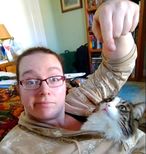

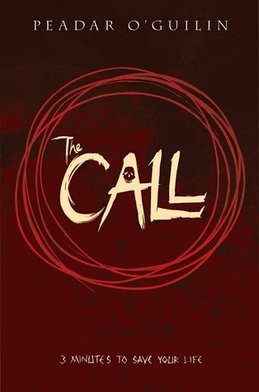
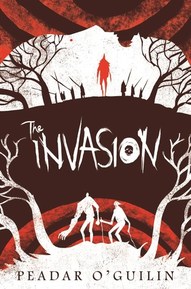


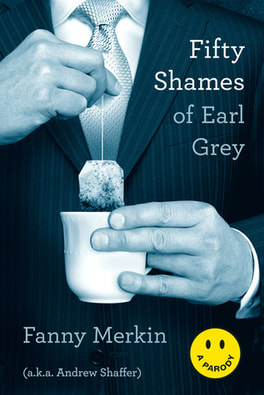
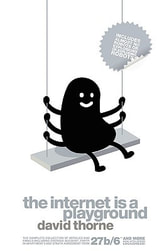
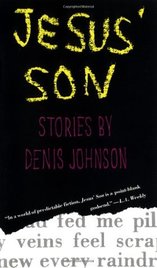
 RSS Feed
RSS Feed